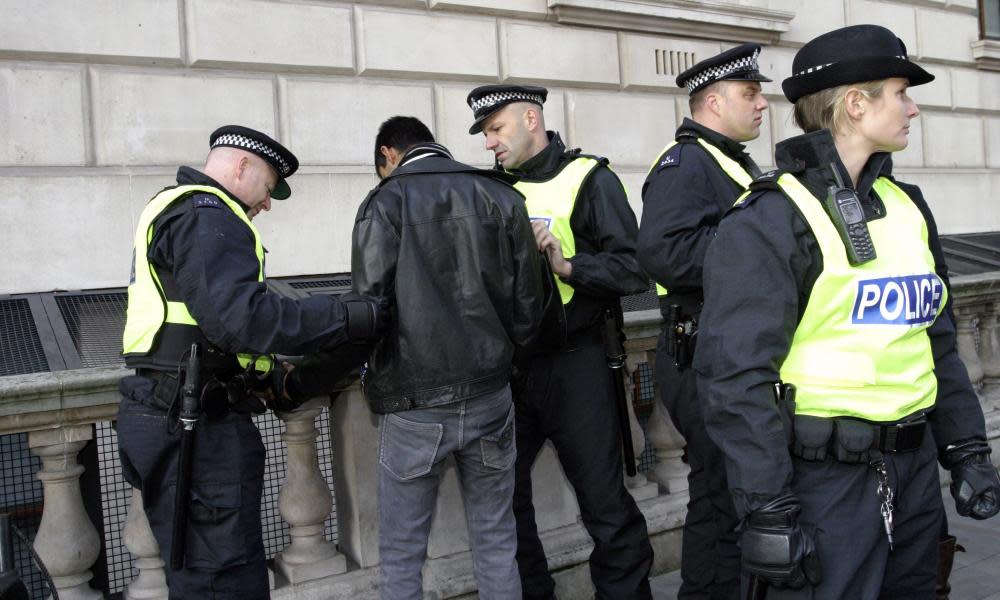I served in the Met. The lack of progress on diversity is disgusting

The question that needs to be asked is not “are the Metropolitan police institutionally racist?”, or “why does black and minority ethnic recruitment for the police still lag so far behind the diversity of London as a whole?” It should simply be: “Why do young black and minority ethnic people reject the Metropolitan police as a career choice?”
This week, marking 20 years since the landmark Macpherson report on institutional racism in the police, the Met said it would take 100 years for the force to mirror the wider diversity of London and will remain disproportionately white. Why?
The answer can be found in the experiences of black and minority ethnic communities of the police, which continues far too often to be marked by incivility, suspicion and distrust. The continued disproportionate use of stop and search and the vanishingly low numbers of stops that result in a substantive charge, never mind conviction, cements in young black consciousness an underlying enmity – a feeling that the police are “other”.
From those new recruits who manage to overcome this feeling of alienation, I’ve heard how the recruitment process can often make BAME individuals feel unwelcome.
Those who make it to become serving officers also experience a continued canteen culture which, while muted in its vocal expressions of racism compared with 35 years ago when I joined, nevertheless still has subtle ways of excluding BAME staff as well as LGBT officers. There has been significant progress both in terms of the initial recruitment and promotion of female officers, but this has not been mirrored for BAME staff. Promotion for black, Asian and minority ethnic officers continues to take longer, and come up against more obstacles than for white colleagues. As recently as 2008, I set up a mentoring and coaching programme to raise promotion rates for BAME officers, which had some early successes. Unfortunately, when I tried to extend the programme, the initiative was rubbished by senior officers.
Access to further and specialist training, and hence jobs with special squads, is holding BAME officers back: selection continues to be based on who you know rather than what you can do. That means the police service is missing out on talented individuals who could contribute to specialist teams, and help reduce the impression, for example, that responders are less careful about the safety of BAME suspects.
This depressing picture reflects a failure to fully engage with the Macpherson message that “processes, attitudes and behaviour which amount to discrimination through unwitting prejudice, ignorance, thoughtlessness and racist stereotyping disadvantages minority ethnic people”.
This week Cressida Dick, the force’s head, claimed the Met is not institutionally racist: “I don’t feel it is now a useful way to describe the service and I don’t believe we are,” she said. “I simply don’t see it as a helpful or accurate description.”
But in saying this, the commissioner is effectively rejecting the reality of the unconscious bias that certainly exists. She is also fostering the unhelpful idea that naming the problem amounts to a slur on individuals. This failure to recognise discrimination where it exists has stymied the progress that the Met could and should have made, both in its attitude to the general public and to BAME recruits and officers. It has sabotaged attempts to bring the Met into the 21st century, and will continue to do so.
Only when discrimination – whether implicit or explicit, wilful or unwitting – is recognised can it start to be addressed. And only when it is addressed will the daily experience of black and minority ethnic Londoners encourage them to join the police to create a virtuous upward spiral of respect, acceptance and diversity.
• Dal Babu is a former chief superintendent in the Metropolitan police

 Yahoo News
Yahoo News 
